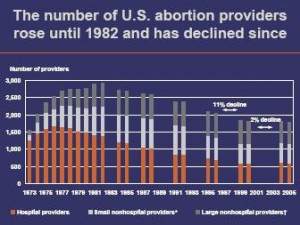Joseph Stiglitz, the Nobel Prize-winning economist, is suggesting we let banks fail.
This is a slightly more radical version of what I’ve been saying* for some time:
- We don’t need the current banks.
- If they won’t lend, let them go under.
- If the Fed can lend to banks, it can lend directly to banks and consumers.
The following article was originally published Feb 2, 2009. I am reprising it here because the reminder seems necessary.
No Banks Means No Banking Crisis
Banks exist to act as intermediaries between central banks and those who need credit. Banks are given the ability to create (yes, create) money through fractional reserve money, and they also have the right to borrow money at rates that no one else can receive.

Image by Twolf
If you could take your money, multiply it by 10 (that’s not the exact number, but as an example) and lend it out, do you think you could make a profit? If you could borrow money at 1- 5% and then lend it out for more than that, in some cases 15% more, do you think you could make money? That’s how banks operate.
Banks are thus given an incredibly valuable privilege by governments. It’s really hard to overstate how easy it is to make steady returns as a bank as long as you don’t get greedy.
In exchange for the right to create money and borrow it at rates no one else gets, banks are expected to add some value to the equation. Specifically, banks are expected to figure out who is a good credit risk, and where money should best be loaned and used. There are two sides of this arrangement:
- Money should be loaned where it has a high return.
- It should also be loaned to people who can pay it back. And it should be invested in the same way, return averaged with risk.
Banks have not been doing this.
Banks have been seeking out the highest return without taking risk into account . Instead, they have been seeking out high risk for high returns. They haven’t been adding value. They also haven’t been performing the taks of getting money to the people who can use it best. Banks took the money and invested in securities which were essentially fraudulent, in a bubble that any idiot could see would not last, in non-productive financial industries. They didn’t invest in manufacturing, by and large, or new technologies or alternative energy, or anything particularly useful. They didn’t use money to actually grow the economy—GDP was going up, and profits were going up, but the illusion of growth was based on multiple financial bubbles that weren’t sustainable and didn’t indicate any real prosperity underneath.
And when it came to loaning to ordinary people, in many cases, they were lending at usurious interest rates. (What’s your credit card’s interest rate?)
In exchange for the very valuable privilege of creating money and borrowing at lower rates than anyone else get, banks weren’t creating value for the economy; they were destroying value.
Stiglitz is right. There’s no reason to keep banks around, at least not this bunch of banks. Let private investors take their losses, guarantee deposits, do a clean up as best you can and create new banks. Or in the case of the US, maybe not…
Instead, what needs to be done is to just have the Fed lend directly to consumers and businesses. Let everyone switch their credit card to a Fed card, and as a one time thing everyone can switch over up to a $10,000 balance. The interest rate? How about the top end of the Fed Funds rate +4%? Right now, that would mean a 4.25% interest rate. If people default, well, garnish their wages. You’re the government.
Start lending to businesses. Base lending it off credit ratings after you take over the ratings agencies, or force reform, because the rating agencies demonstrated they are worthless when they rated much of the junk that’s now imploded as great credit risks.
In time the central bank makes these loans conditional—you can borrow money from the Fed only for certain things:
- Want to buy a house to live in? Sure, you can borrow the money in one of 5 standard mortgage styles.
- Want a vacation home or an investment home? Go to a commercial lender.
- On your credit card, want to buy food? Great.
- Want to put a vacation on your card? Forget it.
- Want to buy a fuel efficient car? Sure.
- Want to buy a gas guzzler? Get your financing somewhere else. (Not that this is much of an issue, given the low rates car companies give.)
Of course, the Fed may not want to be in the business of looking into too many things too deeply. So something like banks is useful for when folks do want that vacation, or that second home, or to borrow money to start a business as opposed to just a credit line for one that’s ongoing.
Fortunately there is one group of financial institutions in the economy which has done a good job as banks, even though they aren’t called banks: America’s credit unions.
Help credit unions expand, offer them better credit, get them together to set up wide ranging ATMs so folks can get their money anywhere. Use the one part of the system which, because they aren’t stock companies driven by quarterly results and don’t expect multi-million dollar bonuses, didn’t get involved very much in the greed driven stupidity of the last few decades.
As for the banks, if they can survive on their own, great. If they can’t, nationalize the banks and slowly wind them down. It may take years, but so be it. Wipe out the shareholders completely (they took the money in the good years). Give the creditors what they deserve, if there’s anything left for them. Move the deposits over to healthy banks or credit unions.
Stop throwing good money after bad. Something like $8 trillion has been spent, loaned and guaranteed so far and it hasn’t stopped the crisis. Take the losses, find out where the bottom is and build a new system.
This will also lead to a more vibrant society in the long run. Banks have been abusing the privileges they received and as a result credit for the things America really needs has dried up. Wanted a loan for a hedge fund? No problem. Wanted a loan for a new company employing hundreds that would only make 5% to 8% a year? Probably not.
But it was the hedge funds returns that were fake. And it was the small businesses that never started because they could only make 5% a year which could have produced real value and lasting jobs. If you want people to start new businesses, if you want consumers to spend, then giving them credit at reasonable rates, and making that credit available, is what has to be done.
At the same time, due diligence has to come back into the equation. Everyone in America needs a credit card. Might as well just give them one. Without it you can’t rent a car, stay in a hotel or really interact in a modern society. But eveyone doesn’t need or deserve the same credit limit. And everyone doesn’t need a home equity loan, in fact very few people do. Let the Fed do the drop dead easy lending “you have an income of $50,000 a year, you want a mortgage where you will pay $10,000 a year, that’s under 30%, you can have it”. Have the credit unions and the few remaining banks do the more speculative lending, but watch them like hawks. And take the credit bureaus and the ratings agencies under government sway, and either nationalize them or regulate the heck out of them, so that the ratings they give mean something.
Add in some federal anti-usury laws (no interest rates above fed funds + 15%, on anything, including fees) and you’ve got yourself a full new banking system where credit is available to those who need it at reasonable rates, while reasonable oversight is occuring. And because so many investors and lenders were wiped out, well, the lesson will have been learned, for a couple generations, that if you do really really stupid things, the government won’t just bail you out.
No more privatizing profits and socializing losses.
*For more on this topic



